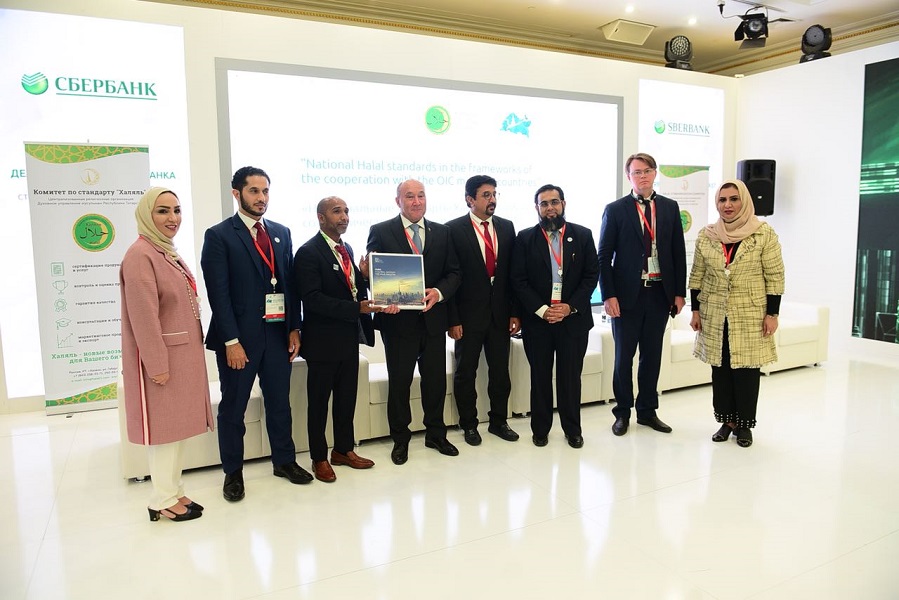Dubai Islamic Economy Development Centre signs MoU with Tatarstan Investment Development Agency at Kazan Summit 2018
By Aliheydar_Rzayev Monday, 14 May 2018 1:03 PM

Dubai Islamic Economy Development Centre (DIEDC) has concluded its successful participation at the 10th Russia – Islamic World Kazan Summit that ran from 10 to 12 May.
Supported by the Federation Council of the Federal Assembly of the Russian Federation and the Government of the Republic of Tatarstan, the annual summit seeks to strengthen trade and economic, as well as scientific-technical, social and cultural ties between the Russian Federation and member states of the Organisation of Islamic Cooperation (OIC).
A memorandum of understanding (MoU) signed between DIEDC and the Tatarstan Investment Development Agency (TIDA) served as a key highlight of the 2018 summit that was built around the theme ‘Halal Lifestyle’. Under the agreement, the two parties will collaborate to attract investments, support the implementation of investment projects, participate in the formation of a favourable investment climate, and increase the investment attractiveness of the Republic of Tatarstan.
DIEDC and TIDA will also work to identify delegates for jointly organised events, while facilitating the introduction of Islamic finance instruments in the Republic of Tatarstan and helping to enhance the profile of Islamic economy in TIDA-led activities and programmes.
Commenting on DIEDC’s participation at the 10thKazan Summit, Abdulla Mohammed Al Awar, CEO, said: "Our successful experience in developing the Islamic economy in general and the halal industry in particular places the onus on us to raise awareness of the importance of this sector to future generations. It is indeed encouraging to note that the halal way of life is becoming the norm for large segments of non-Muslim consumers. Building on this high uptake, DIEDC is working with our global partners to expand the social and economic impact of the halal culture across the world.
“As part of this priority, the new MoU will help open up investment opportunities and the potential for sustainable growth of sharia-compliant products and services to ensure long-term social and economic stability."
Halal lifestyle
Moderating a panel discussion on ‘Halal, a Lifestyle’, Saeed Kharbash, Deputy CEO - Strategy & Planning, DIEDC, said: "The halal sector is a balanced and sustainable domain. It is not designed to favour either the consumer or the investor, and seeks to protect both by providing high quality products that meet all safety, health and environmental sustainability standards. We are keen to spread the culture of halal around the world to achieve sustainable development goals that many countries are ready for and looking forward to."
Technical workshops
In the run up to the signing of the agreement, Dubai Islamic Economy Development Centre (DIEDC) hosted a series of workshops in cooperation with Group of Strategic Vision ‘Russia-Islamic World’ to share knowledge related to Islamic banking and finance, identify leading trends and developments related to the Islamic economy sector, and transfer the experience of Dubai and UAE in the development of an integrated Islamic economy strategy.
More specifically, the workshops focused on raising awareness of the importance of Islamic finance and the principles of sharia and its sources, the economic philosophy of Islam, prohibited economic transactions in Islam, the financial security of the Islamic economy and the reasons for its advantages over the conventional economy. The workshops focused on Islamic contracts such as murabaha, wakala and musharakah, in addition to sharia governance, sukuk and its role in achieving sustainable development.




























Add new comment